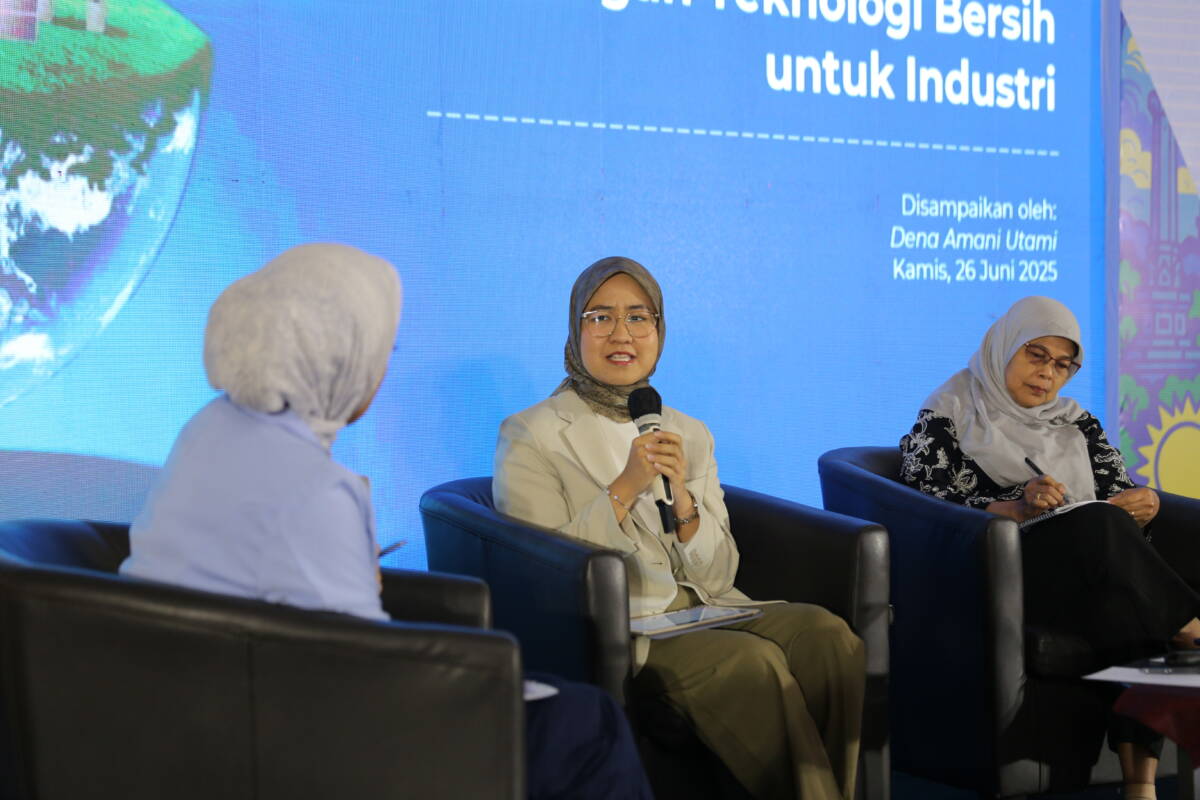Semarang, June 26, 2025 – Central Java continues to demonstrate its commitment to supporting decarbonization efforts, in line with the national target of achieving Net Zero Emission (NZE) by 2060 or sooner. One of the keys to achieving this target is the adoption of low-carbon technology in the industrial sector, considering that industry is a significant contributor to carbon emissions in this region.
Dena Amani Utami, Industrial Decarbonization Program Staff, IESR said that low-carbon technology (LCT) is an innovation, method, or system designed to reduce greenhouse gas emissions, even to zero emissions. In addition to contributing to climate change mitigation, LCT also increases efficiency, competitiveness, and industrial resilience to the energy crisis.
“Some of the main LCT approaches that are relevant to implement, such as the application of high-efficiency standard machines and production systems, are able to reduce energy and raw material consumption, reduce production costs and minimize waste and industrial process emissions. In addition, the use of rooftop solar power plants has begun to be adopted in industrial areas,” said Dena in a discussion session at the Central Java Renewable Energy Investment Forum (CJREIF) 2025 on Thursday (26/6).
Sri Gadis Pari Bekti, Head of the Industrial Decarbonization Team, Green Industry Center, Ministry of Industry, stated that referring to SE Menperin No. 2 In 2025, industrial companies and industrial areas are required to report emission data periodically, including air pollutant data for January–June, reported no later than July 10 of the relevant year, air pollutant data for July–December, reported no later than January 10 of the following year, annual GHG emission data, reported no later than April 10 of the following year, and industrial emission data for 2023 and 2024, reported no later than July 10, 2025.
“This obligation emphasizes the importance of industry readiness in having an accurate, complete, and internationally standardized emission data inventory system. This reporting is also the basis for determining stricter emission restriction policies in the future. This industrial emission reduction policy is expected to be a structural transformation towards a competitive and environmentally friendly industry,” said Sri.
Hanif Mantiq, Chairman of the Indonesian Investment Managers Association (AMII), highlighted sustainable finance, which is a major concern in various investment sectors. Environmental, Social, and Governance (ESG) refers to an approach that considers environmental, social, and governance factors in investment decision-making. One of the products that is increasingly developing in the world of sustainable investment is mutual funds, which now integrate many ESG principles.

